Our Residency Programs
We are proud to train the next generation of surgeons at the University of Arizona College of Medicine - Tucson. In partnership with Banner - University Medicine, our faculty oversee the administration of two residency programs, one in general surgery and the other in vascular surgery.
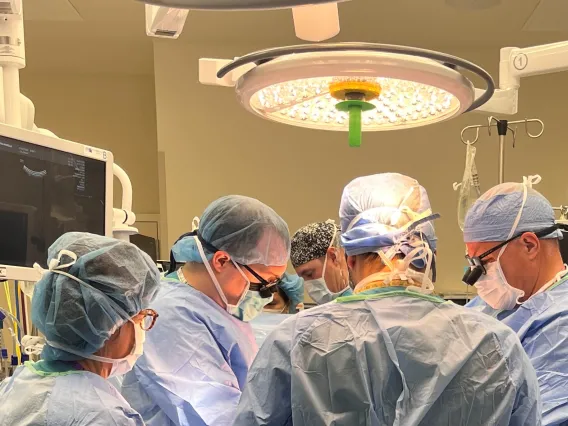
General Surgery
Our program is a five-year, fully-accredited, non-pyramidal program with ten categorical positions per year. Our commitment is to train young surgeons to a high level of competency in clinical and academic surgery and, most importantly, to guide them in becoming professional leaders in their field of interest.
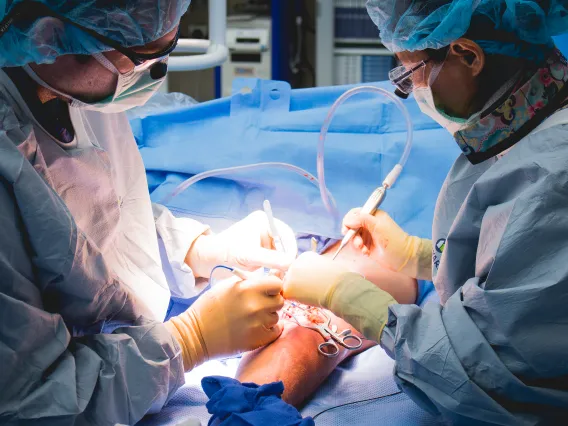
Vascular Surgery
The 0-5 integrated Vascular Surgery Residency Program at the University of Arizona is designed to produce trainees well-rounded in all aspects of vascular surgery. Progressively increasing responsibility will be provided under careful attending supervision, leading to the development of thoughtful, ethical and highly competent independent practitioners of the specialty.
Independent Plastic Surgery Residency Program
The Independent Plastic Surgery Residency Program at the University of Arizona is an ACGME accredited pathway into Plastic Surgery in which residents complete three years of concentrated plastic surgery education, with 12 months of chief responsibility, after successful completion of a formal training program (and are board admissible or certified) in general surgery, otolaryngology, neurosurgery, orthopaedic surgery, urology, or oral and maxillofacial surgery.
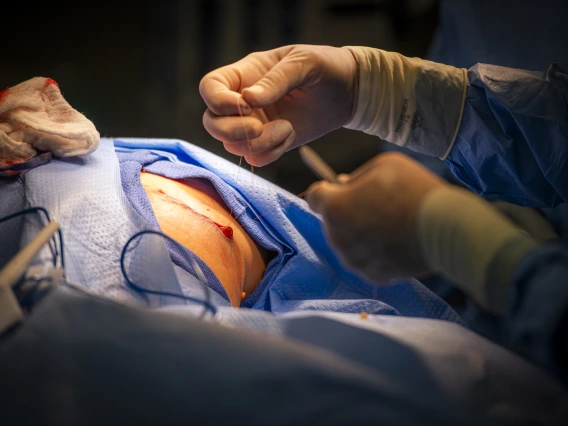
Our independent plastic surgery residency program accepts two new residents per year who will pursue a three-year focused experience in plastic surgery having completed an ABMS approved surgical residency.
Clinical Fellowship Programs
Several clinical fellowships are offered through the University of Arizona Department of Surgery to expand and deepen our trainees' expertise in their chose subspecialty. Our fellowships in trauma, cardiothoracic, minimally invasive and vascular surgery provide training with experts in their fields and in an environment with a highly diverse patient population.
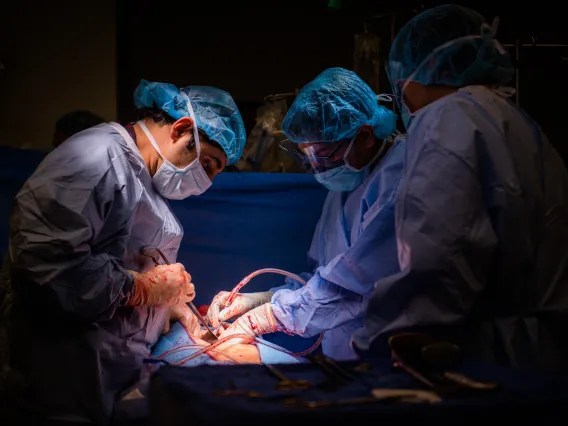
Surgical Critical Care, Trauma and Acute Care Surgery
This is a two-year fellowship program. The first year, fellows participate in an ACGME-accredited surgical critical care program with a 12-month curriculum that includes rotations in four ICUs, elective rotations, and research. Year two is an acute care surgery, AAST accredited program, with training in trauma and emergency general surgery, vascular, cardiothoracic, hepatobiliary, and burn surgery. The fellowship program is overseen by seven full-time trauma/critical care surgeons.

Cardiothoracic Surgery
The Cardiothoracic Surgery Residency Program matches one fellow per year for a two-year fellowship. The two fellows alternate between the cardiac and thoracic surgery services. No other surgical residents or trainees on either service compete for cases. Six midlevel practitioners (ANPs or PAs) support the two services.
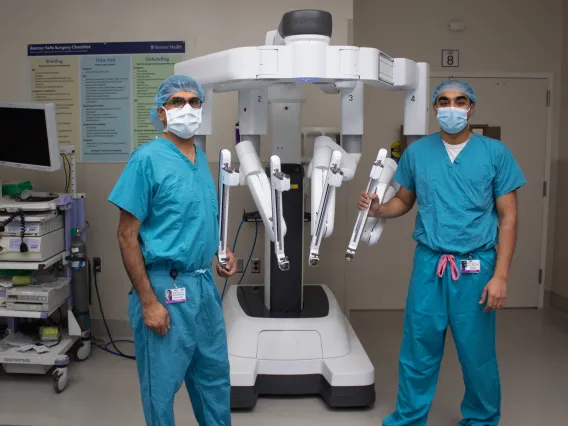
Minimally Invasive and Robotic Surgery
Our dual purpose is to train those who will provide top quality patient care and be academic leaders in minimally invasive and robotic surgery. Our fellows in turn will train many physicians for practice in communities across the country. This emphasis makes our fellowship one of the most unique programs in the United States.
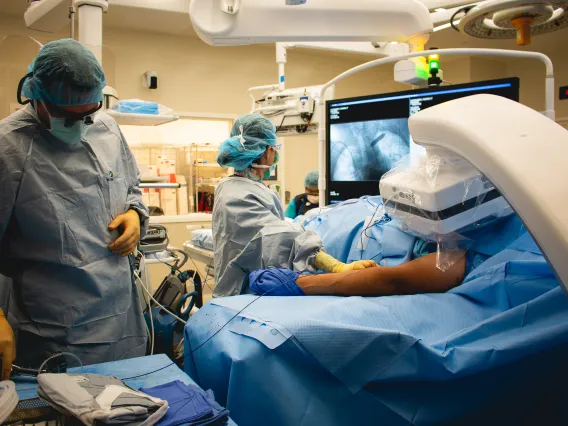
Vascular Surgery
Our areas of specific interest include the biology of vascular implants, endografts and stents, mechanisms of graft healing, the study of vein graft stenosis and myointimal hyperplasia in humans, and the possible improvement in prosthetic graft patency conferred by autogenous vein patches and cuffs. We continue to work with Ron Heimark, PhD, a well recognized basic scientist in the areas of vascular biology, including endothelial cell transplantation, smooth muscle cell function and the role of cadherins in vascular biology.
Research Fellowship Programs
In addition to our clinical fellowships, the Department of Surgery also organizes two postdoctoral research fellowships, one specializing in trauma surgery and the other in minimally invasive surgery.
Postdoctoral Research Fellowship in Minimally Invasive Surgery
A postdoctoral scholar is a trainee in residence pursuing to carry out advanced studies supervised by the principal investigator utilizing knowledge of equipment, methodology, and current developments in the field of minimally invasive surgery. Postdoctoral Scholars are appointed for a limited period of time and may participate on the Department’s research projects.
International Research Fellowship
The goals of this program, in addition to research opportunities, include establishment of international relationships and for the fellow to personally observe the acute care surgery system in the United States. This fellowship will allow candidates to bring research and systems experience back to their country.

